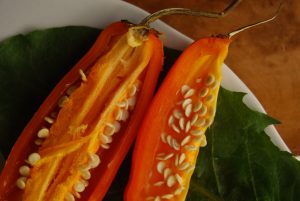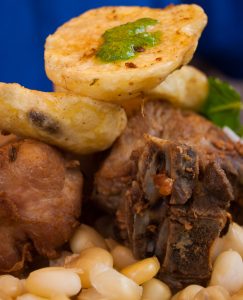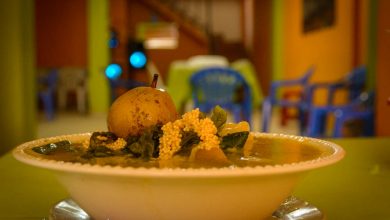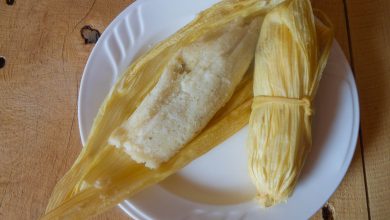Does Uchu, Hot Pepper, Simply Mean “Food” in Quechua?

Yesterday, at a family lunch in the home of my compadres a delicious hot sauce accompanied the chicken and rice. That is normal in Peru where a small bowl of home made salsa is on the table when people eat. In the spirit of openness, I confess I am a chile-head and loved it. But one member of the family was adamant he does not like hot sauce or hot peppers.
I guess it is not surprising some people just do not like the sting I find so delightful and appetizing, even though eating hot peppers is institutionalized as part of Peru’s life. Gastón Acurio, Peru’s great chef, is even on record as stating that hot peppers, ajíes in South American Spanish, are the base of Peruvian cuisine. Despite his glowing approval, many Peruvians do not like hot peppers.
They face a strong uphill battle, given the omnipresence and variety of peppers in the country. In Cuzco, certainly, there is a very long and very deep tradition of consuming hot pepper. That tradition is rooted in contemporary gastronomy.
One way of noticing that would be to look at recipes, or to go to the seasoning section of Cuzco’s markets. In both cases, yellow and red ají are two of the most demanded seasonings, along with garlic and salt, then followed by cumin, huacatay, cilantro, oregano and allspice, while rocoto peppers seem everywhere.
Another way is to look at names. Many dishes in Cuzco carry the name of uchu, such as chiriuchu, uchu de lisas, and so on. Uchu seems a generic word for food.


We can ask if it is like the Cantonese word for food, “chi fan”, enshrined in the Peruvian word for Chinese food, “chifa”. This word means not just food, but more specifically, “to eat rice”. In this way, rice is set up as the sine qua non of what makes food and therefore the basic idea of food.
Nevertheless, I do not think that comparison works for hot peppers in Cuzco. Uchu seems a particular kind of food, and not just food in general. If so, this difference makes it comprehensible for people not to like hot peppers despite how constant their use is in Cuzco’s cuisine.
By the way, the term uchu used to describe dishes, while typical of Cuzco, is replaced with the word ají in nearby cities such as La Paz. Both words simply mean hot peppers. Ají is the Caribbean word the Spanish brought with them when they came to Cuzco and uchu is the Quechua word common in the general language used by the Incas.
This commonality of uchu as a kind of food–almost a generic idea for food, but not completely so, requires more thought.

For this task it seems relevant to notice the story of the Ayar brothers and sisters, since myth seems to have a relationship to food. These siblings are inscribed in the texts of some of the Spanish who came early to Peru and tried to write down what they saw and heard.
Though many web sites as well as published books and articles will simply declare them as the ancestors of the Incas, in reality the story comes in fragments in the work of different writers from the sixteenth century. The sacred history of the Ayar siblings coming from the earth near Cuzco meets that of the sacred couple coming from Lake Titicaca.
When described the story of the Ayar siblings includes pairs of brothers and sisters. Despite differences in spelling and naming, it seems a few of the names are quite common. Two of these are the brothers Ayar Cachi and Ayar Uchu.
In Quechua, Cachi means salt and Uchu means hot pepper as we have seen. Without having to go into the various arguments around the meaning of Ayar, or the meanings of their sisters’ names we can emphasize here that the story speaks of a kind of personified salt and hot pepper coming out of the earth and that somehow from them according to many accounts, the Incas originated.

If we look at this for what it might say about our question of whether uchu simply means food or not, we must note that these two condiments, salt and hot peppers, are only two two of the four brothers. The other two, according to Betanzos, are Ayar Auca and Ayar Manco, while the four women are Mama Guaco, Mama Ocllo, Cura and Ragua Ocllo.
Betanzos has salt being the first to come from the earth, followed by the peppers, with their respective sister wives, and then the others.
Once the brothers and sisters leave the cave they plant potatoes in one valley where they live for a while and then corn when they start residing in the city of Cuzco. The seeds for these crops came with the Incas from the cave where they originated.
For our question about the universality of uchu as a name for food, this story is important. Food (potatoes and corn) came with the Ayar brothers and sisters from the caves as seed. They were embryonic forms that needed to be placed again by the Incas in the ground, cultivated and then they produced food.
But that food contrasts, in terms of origin, with salt and hot pepper. Instead of coming out of the cave as seed, they appear full grown and personified as senior siblings of the people who become the Incas. They are people, not food per se.
As a result, we can say that these condiments (siblings) transform food (potatoes and corn) into something delicious just as the work of the Incas to put seed in the ground and cultivate it transforms the seed into food.





